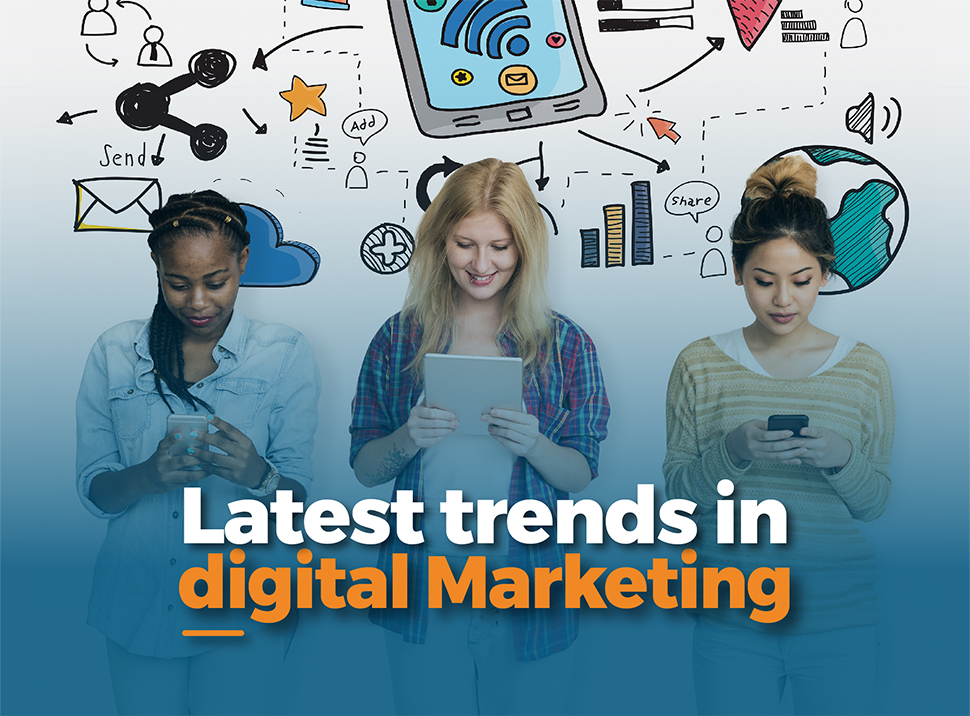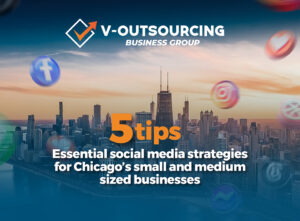Exploring the Latest Trends in Digital Marketing
In the rapidly evolving world of digital marketing, staying informed about the latest trends is crucial for any marketer looking to stay ahead. As technology advances and consumer preferences shift, the strategies that worked yesterday might not be effective tomorrow. In this article, we delve into the significant digital marketing trends that are shaping the industry in 2024.
The Rise of AI in Digital Marketing
How AI is Transforming Content Creation
Artificial Intelligence (AI) is redefining how content is crafted, making it more personalized and efficient. AI tools are now capable of generating written content, images, and even videos that are tailored to the specific preferences of a target audience, dramatically increasing engagement and conversion rates.
AI and Personalized Customer Experiences
Beyond content creation, AI is instrumental in creating personalized shopping experiences. By analyzing user data, AI can predict buying behavior and tailor marketing messages accordingly, enhancing the customer journey and boosting loyalty.
The Importance of Video Content
Live Streaming as a Marketing Tool
Live streaming has become a powerful tool for marketers aiming to engage with their audience in real-time. This approach not only boosts transparency but also increases user engagement, offering a real-time connection that enhances brand loyalty.
The Impact of Short-Form Videos
Platforms like TikTok have popularized short-form videos, compelling marketers to think creatively in compact timeframes. This trend demands high creativity to capture attention quickly and convey messages succinctly.
Voice Search Optimization
Techniques for Optimizing for Voice Search
With the proliferation of smart speakers and voice-activated devices, optimizing for voice search is becoming increasingly important. Techniques include using natural language, focusing on conversational keywords, and providing direct answers to common questions.
The Growing Importance of Voice in SEO
Voice search is changing SEO strategies as queries become more conversational. This shift emphasizes the need for content that answers questions directly and succinctly, mirroring how real people talk and inquire.
Influencer Marketing Evolution
Shifts from Macro to Micro-Influencers
The influencer marketing landscape is shifting towards micro-influencers due to their higher engagement rates and niche audiences. Brands are seeing better returns by partnering with influencers who have smaller, but more dedicated followings.
Measuring ROI in Influencer Campaigns
Determining the ROI of influencer campaigns has always been challenging. With new tools and analytics, marketers can now track performance more accurately, making influencer marketing more accountable and transparent.
Augmented Reality in Advertising
Examples of AR in Marketing Campaigns
Augmented Reality (AR) offers unique opportunities for immersive brand experiences. From virtual try-ons to interactive ads, AR is providing new ways for consumers to engage with products before purchasing.
Future Trends in AR
As technology progresses, the applications of AR in digital marketing are expanding. Future trends might include more personalized and context-aware AR experiences that enhance the user’s environment in real-time.
Mobile-First Marketing
The Necessity of Mobile Optimization
With most internet users accessing the web via mobile devices, mobile-first strategies are not just beneficial but essential for success. Websites and campaigns need to be designed for mobile from the ground up, ensuring seamless experiences across all devices.
Mobile Marketing Strategies for 2024
In 2024, effective mobile marketing strategies will involve more than responsive design. They will need to leverage mobile-specific features like geotargeting and augmented reality to engage users more deeply.
Social Media Marketing Shifts
Changes in Platform Popularity and Usage
Social media landscapes are constantly changing, with shifts in platform popularity significantly impacting marketing strategies. Marketers must stay agile, adapting their strategies to align with where their audiences are most active.
The Role of Social Commerce
Social commerce is transforming the way people shop, integrating the shopping experience directly into social media platforms. This integration allows for seamless interaction from product discovery to purchase, making it a crucial trend for businesses to capitalize on.
Privacy and Data Protection
GDPR and Its Impact on Marketing
The General Data Protection Regulation (GDPR) has reshaped digital marketing in Europe and globally, placing a greater emphasis on consumer rights and data security. Marketers must ensure their strategies comply with these regulations to avoid hefty penalties.
Building Trust through Data Privacy
In an era where data breaches are common, trust is paramount. Marketers need to prioritize data protection not just to comply with the law, but to build and maintain trust with their audience.
Programmatic Advertising
How Programmatic Ads Work
Programmatic advertising uses AI to automate the buying of ads and target audiences more specifically, which enhances the efficiency and effectiveness of ad campaigns.
Benefits and Challenges of Programmatic Buying
While programmatic advertising offers significant benefits such as increased efficiency and targeted reach, it also comes with challenges such as privacy concerns and the complexity of the ad tech landscape.
Content Personalization and Segmentation
Techniques for Segmenting Audiences
Effective segmentation involves understanding various customer demographics to tailor marketing strategies accordingly. Techniques include analyzing customer behavior, demographic data, and psychographic information.
Benefits of Personalized Marketing
Personalized marketing not only enhances customer experience but also increases marketing efficiency by delivering relevant content to the right audience at the right time, thus improving conversion rates.
Integration of Offline and Online Marketing
Strategies for Omnichannel Success
Omnichannel marketing integrates offline and online marketing channels to provide a seamless customer experience. Strategies include consistent messaging across platforms and leveraging data to enhance customer interactions.
Case Studies of Integrated Marketing Approaches
Examining successful case studies can provide valuable insights into effective integrated marketing strategies. These studies demonstrate how blending digital and traditional marketing can result in increased brand awareness and sales.
Frequently Asked Questions
AI revolutionizes digital marketing by enabling personalized customer experiences, automating content creation, optimizing ads in real time, and providing actionable insights through data analysis.
Live streaming boosts engagement by connecting directly with audiences in real time, increasing brand transparency, enhancing customer loyalty, and providing immediate feedback and interaction opportunities.
Voice search optimization focuses on natural language processing, targeting conversational queries and prioritizing direct answers, unlike traditional SEO, which targets specific keywords and written content formats.
Companies should consider an influencer’s relevance to their brand, audience engagement levels, authenticity, content quality, and the potential reach and demographics of the influencer’s followers.
Augmented reality enhances customer engagement by creating immersive experiences, allowing users to visualize products in real-world settings, which boosts interaction and enhances the decision-making process.
Best practices include obtaining explicit consent for data collection, ensuring transparency about data usage, implementing robust security measures, and regularly updating privacy policies in compliance with legal standards.



